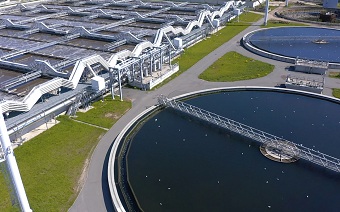Warning that “the next Pearl Harbor, the next 9/11 will be cyber,” U.S. Sen. Angus King urged government and private-sector officials to do more to be prepared. The two-term Maine independent said at a hearing in Washington that the nation faces “an extremely dangerous situation” because so much of its critical infrastructure can be targeted by hackers and intruders. “We are facing a vulnerability in all of our systems, but water is one of the most critical and I think one of the most vulnerable,” King said at the start of a hearing before the Senate’s Environment and Public Works Committee focused on the cybersecurity of U.S. water systems.
The committee’s chairman, U.S. Sen. Tom Carper, a Delaware Democrat, said Wednesday that “we face threats from unscrupulous individuals, criminal enterprises, and antagonistic state actors 24 hours a day and seven days a week.” “It’s clear that many of our nation’s vital transportation and water systems face especially serious challenges in dealing with cybersecurity vulnerabilities,” Carper said.
Water systems pose an especially tempting target for cyberattacks, officials said.
“We have seen a growing number of these systems fall victim to these attacks, which can have significant implications on public health and safety,” U.S. Sen. Shelley Moore Capito, a West Virginia Republican and vice chairwoman of the committee, said. “These attacks are very scary for the public when they occur and can leave us questioning the safety of our water systems,” she said.
Carper pointed out that a 2019 report by the American Water Works Association called the cyber risk the top threat facing the U.S. water sector after hearing the year before from the Department of Homeland Security and the FBI warning operators “that the Russian government was specifically targeting the water sector and other critical infrastructure as part of a multi-stage intrusion campaign,” Carper said. Carper warned that “a major breach in our water infrastructure system could jeopardize the safety of our drinking water and impair communities’ ability to safely dispose of harmful waste, threatening human health.”
King has been pushing for more attention to cybersecurity for years and remains unsatisfied with the nation’s progress toward beefing up its defenses.
Last month, during a Washington Post Live event, the state’s junior senator said that “for the past 15 years or so, we haven’t had much in the way of a deterrent” to keep bad actors from targeting systems that are crucial to the functioning of the country’s economy. “We’ve been a cheap date in cyber where we’ve been attacked repeatedly in a variety of ways and no real serious response,” King said, merely “sanctions here and there” that haven’t done enough to make foes back off.








